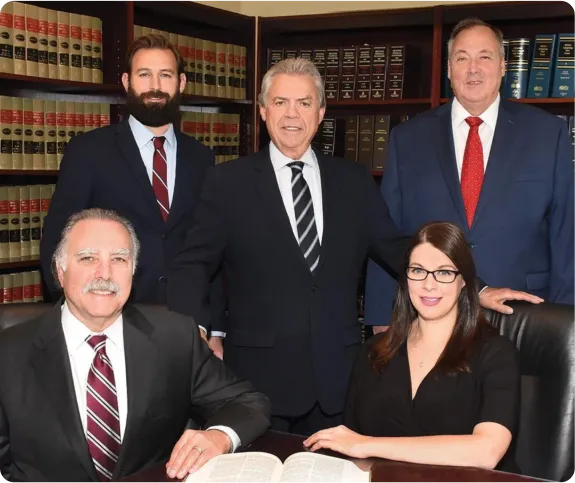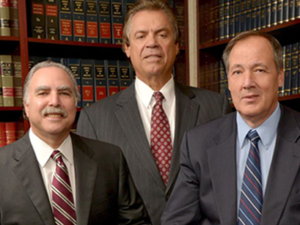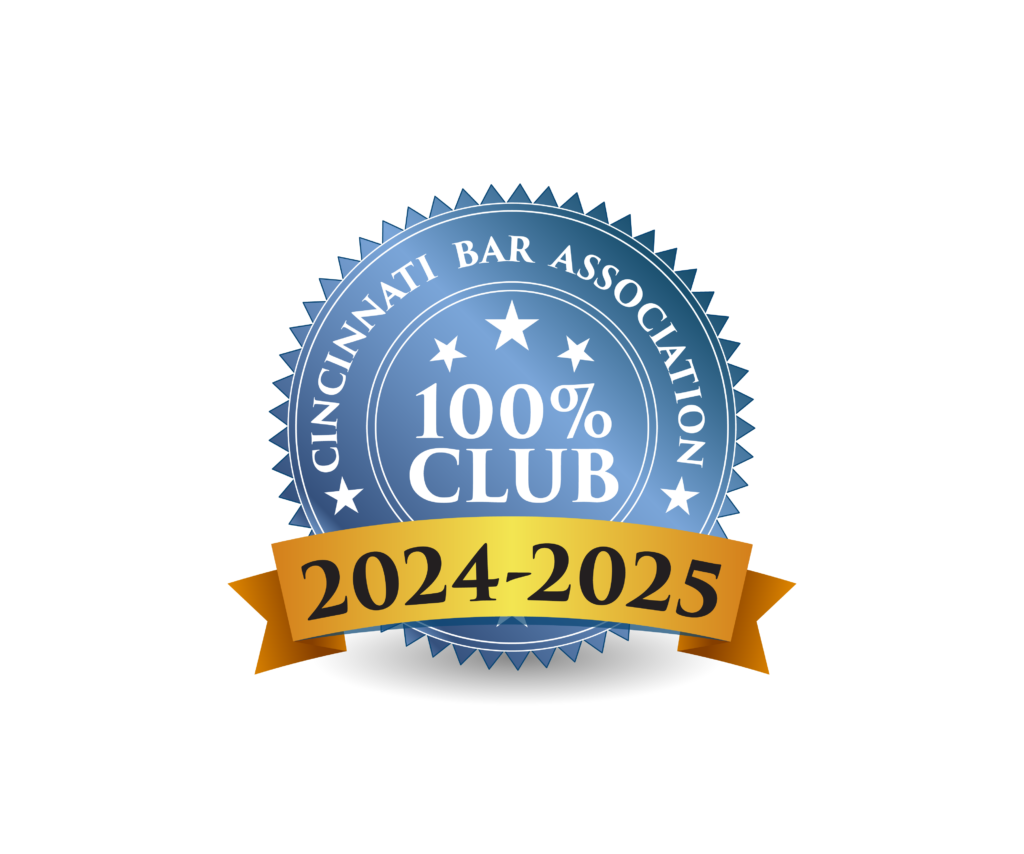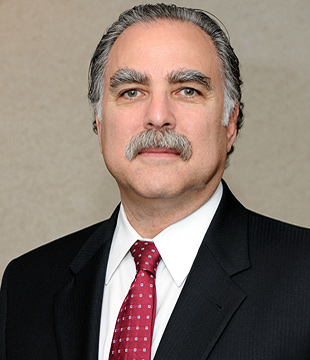Rideshare services have transformed the way Cincinnatians get around. While convenient, these services can also lead to accidents. If you're a passenger, driver, or pedestrian injured in a rideshare accident, you need a strong advocate.
That's where the experienced Cincinnati rideshare accident attorneys at O'Connor, Acciani & Levy come in.
Schedule Your Free Consultation
Table of Contents
- Understanding Rideshare Accidents in Cincinnati
- Next Steps After a Cincinnati Rideshare Accident
- Navigating Insurance Coverage in Cincinnati Rideshare Accidents
- Determining Liability in Cincinnati Rideshare Accidents
- Potential Damages in Cincinnati Rideshare Accident Cases
- Why Choose O'Connor, Acciani & Levy for Your Cincinnati Rideshare Accident Case
- The Legal Process for Cincinnati Rideshare Accident Claims
- Statute of Limitations for Rideshare Accident Claims in Cincinnati
- Common Injuries in Cincinnati Rideshare Accidents
- Contact a Cincinnati Rideshare Accident Attorney at O'Connor, Acciani & Levy Today
Understanding Rideshare Accidents in Cincinnati

Rideshare accidents can happen in many different scenarios. Some examples include:
- Accidents with passengers: When a rideshare vehicle carrying passengers is involved in a collision. This could occur on major thoroughfares like I-75 or congested areas like The Banks.
- En route accidents: Incidents occurring while the driver is on the way to pick up a passenger. These often happen during rush hours on busy streets like Vine Street or Central Parkway.
- Waiting period accidents: These happen when the driver is logged into the app but hasn't accepted a ride. They might occur in popular pickup areas like outside Great American Ball Park or Paul Brown Stadium after events.
- Collisions with other vehicles: Accidents involving rideshare vehicles and other cars on Cincinnati roads.
- Pedestrian or cyclist incidents: These occur when a rideshare vehicle strikes a pedestrian or cyclist. We see this too often in pedestrian-heavy areas like Fountain Square or near the University of Cincinnati campus.
- Single-vehicle accidents: Crashes involving only the rideshare vehicle.
Next Steps After a Cincinnati Rideshare Accident

After a rideshare accident, be sure to take the following steps:
- Follow up on medical care: If you have not seen a doctor, do so immediately. Visit your primary care physician or a local urgent care center for a thorough evaluation. Consider visiting the emergency room if you're experiencing severe pain or symptoms.
- Gather information: Collect all the information you have about the accident.
- Report the accident: If you haven't already, report the accident to the rideshare company through their app. Provide a factual account of what happened without admitting fault. If you didn't file a police report at the scene, contact the Cincinnati Police Department's non-emergency number (513-765-1212) to file a report.
- Contact your insurance company: Inform your insurance provider about the accident.
- Avoid social media: Refrain from posting about the accident on social media platforms. Insurance companies may use your posts to dispute your claim.
- Get legal representation: Contact O'Connor, Acciani & Levy for a free consultation. Our experienced Cincinnati rideshare accident attorneys can help you understand your rights and ensure you take the proper steps to protect your claim.
Navigating Insurance Coverage in Cincinnati Rideshare Accidents

In Cincinnati, coverage depends on the driver's status at the time of the accident:
- App off: The driver's auto insurance applies. In Ohio, the minimum coverage required is $25,000 per person for bodily injury, $50,000 per accident for bodily injury, and $25,000 for property damage.
- App on, waiting for a ride request: The rideshare company provides limited liability coverage. For Uber and Lyft, this is typically $50,000 per person for bodily injury, $100,000 per accident for bodily injury, and $25,000 for property damage.
- En route to pick up a passenger or during a trip: The rideshare company's entire commercial insurance policy applies, typically with higher coverage limits. Both Uber and Lyft provide $1 million in third-party liability coverage during this period.
It's important to note that these insurance policies can be complex and often have exceptions or limitations. For example, if a rideshare driver has their own commercial insurance policy, that may take precedence over the company's policy in certain situations.
Determining Liability in Cincinnati Rideshare Accidents

Establishing liability in rideshare accidents can be challenging due to the multiple parties involved. Potential liable parties may include:
- The rideshare driver
- Other drivers involved in the accident
- The rideshare company
- Vehicle or parts manufacturers (in cases of mechanical failure)
- Government entities responsible for road maintenance (in cases where poor road conditions contributed to the accident)
Ohio follows a modified comparative negligence rule. Under Ohio Revised Code §2315.33, you can recover damages if you're not more than 50% at fault for the accident. Your compensation, however, will decrease by your percentage of fault.
Determining fault in rideshare accidents often requires a thorough investigation. This may include:
- Analyzing the police report
- Reviewing traffic camera footage
- Examining the rideshare driver's record and status at the time of the accident
- Consulting with accident reconstruction experts
- Gathering and analyzing witness statements
- Reviewing maintenance records of the vehicles involved
Potential Damages in Cincinnati Rideshare Accident Cases

You may be entitled to different types of compensation after a rideshare accident in Cincinnati:
- Medical Expenses: These include current and future medical costs related to your injuries, such as hospital bills, surgeries, rehabilitation, medications, and medical equipment. In severe cases, they may also include long-term care costs.
- Lost Wages: Compensation for income lost due to time off work for recovery and potential loss of future earning capacity if your injuries affect your ability to work.
- Property Damage: This could include items like cell phones, laptops, or other valuable items in the vehicle at the time of the accident.
- Pain and Suffering: Non-economic damages for physical pain and emotional distress resulting from the accident and injuries. While more challenging to quantify, these damages can be substantial.
- Disfigurement or Permanent Disability: Additional compensation for lasting physical changes or disabilities resulting from the accident. This could include scarring, loss of limb function, or other permanent physical effects.
- Punitive Damages: In extreme negligence or intentional misconduct cases, punitive damages are awarded to punish the at-fault party. While rare, these can significantly increase the total compensation in a case.
- Wrongful Death Damages: If a rideshare accident results in a fatality, family members may be entitled to compensation for funeral expenses, loss of financial support, loss of companionship, and other related damages.
- Out-of-Pocket Expenses: Any other expenses directly related to the accident or your injuries, such as transportation costs to medical appointments or home modifications necessitated by your injuries.
Ohio caps non-economic damages. at the greater of $250,000 or three times the economic damages, up to a maximum of $350,000 per plaintiff or $500,000 per occurrence.
However, these caps do not apply in cases of permanent and substantial physical deformity, loss of use of a limb, or loss of a bodily organ system.
A Cincinnati rideshare accident attorney at O'Connor, Acciani & Levy will work diligently to identify all potential damages and build a strong case to maximize your compensation.
Why Choose O'Connor, Acciani & Levy for Your Cincinnati Rideshare Accident Case
Here's why you should partner with O'Connor, Acciani & Levy:
- Extensive Experience: Our attorneys understand Cincinnati's traffic laws and the aspects of rideshare accident cases.
- Proven Track Record: We have successfully represented numerous clients, securing substantial settlements and verdicts.
- No Upfront Costs: We work on a contingency fee basis, meaning you don't pay legal fees unless we win your case.
- Skilled Negotiators: We have experience negotiating with insurance companies to ensure you receive fair compensation. We know their tactics for minimizing payouts and are prepared to counter them effectively.
- Trial-Ready: While we strive to settle cases efficiently, we're always prepared to take your case to trial if necessary to secure the compensation you deserve.
- Client-Focused Service: We prioritize clear communication and are always available to address your concerns and questions throughout the legal process. We believe in keeping our clients informed and involved every step of the way.
The Legal Process for Cincinnati Rideshare Accident Claims

When you choose O'Connor, Acciani & Levy to handle your Cincinnati rideshare accident case, here's what you can expect:
- Initial Consultation: We'll review your case details and explain your legal options. This is an opportunity for you to ask questions and for us to understand the full impact of the accident on your life.
- Investigation: Our team will gather evidence, interview witnesses, and consult experts if necessary. This may include obtaining police reports, reviewing medical records, analyzing accident scene photos, and consulting with accident reconstruction specialists.
- Case Building: We'll develop a solid legal strategy based on the evidence and applicable laws. This includes calculating the full extent of your damages, both current and future.
- Negotiations: We'll negotiate with insurance companies and other parties to seek a fair settlement. Our attorneys are skilled negotiators who know how to present your case effectively and counter lowball offers.
- Litigation: If the other side cannot reach a fair settlement, we'll take your case to court.
- Trial: If your case goes to trial, we'll present your case to a judge or jury, arguing persuasively on your behalf.
- Resolution: Whether through settlement or trial, we'll work tirelessly to secure the best possible outcome for your case.
Throughout this process, we'll keep you informed and involved, ensuring you understand each step and can make informed decisions about your case. We're always available to answer your questions and address your concerns.
Statute of Limitations for Rideshare Accident Claims in Cincinnati

Ohio's statute of limitations for personal injury claims, including those involving rideshare accidents, is generally two years from the accident date.
However, there can be exceptions to this rule, and it's crucial to act promptly. Waiting too long can result in losing critical evidence and may jeopardize your right to compensation.
For example:
- If the accident resulted in a fatality, the statute of limitations for a wrongful death claim is two years from the date of death, which may be different from the date of the accident.
- If the accident involved a government vehicle or occurred on government property, there may be additional notice requirements and shorter time limits for filing a claim.
- For minors, the statute of limitations may be tolled (paused) until they reach the age of 18.
While you have two years to file a lawsuit, start the legal process much sooner. Building a strong case takes time, and the sooner you involve an attorney, the better chance you have of preserving crucial evidence and witness testimony.
Common Injuries in Cincinnati Rideshare Accidents
Rideshare accidents in Cincinnati can result in:
- Whiplash: This neck injury is common in rear-end collisions and can cause long-lasting pain and limited mobility.
- Back Injuries: From minor sprains to severe spinal cord injuries, back injuries can significantly impact your quality of life and ability to work.
- Head Injuries: Traumatic brain injuries (TBIs) can occur even in seemingly minor accidents and may have long-term cognitive effects.
- Broken Bones: Fractures, particularly in the arms, legs, and ribs, are common in more serious collisions.
- Soft Tissue Injuries: Sprains, strains, and contusions can cause significant pain and limit mobility.
- Internal Injuries: Damage to internal organs may not be immediately apparent but can be life-threatening if left untreated.
- Psychological Trauma: Many accident victims experience anxiety, depression, or PTSD following a traumatic crash.
- Cuts and Lacerations: While often less severe, these injuries can lead to scarring and potential complications if not properly treated.
- Knee Injuries: The impact of a crash can cause damage to ligaments, tendons, and cartilage in the knee.
- Shoulder Injuries: Rotator cuff tears and other shoulder injuries are common, especially when the seatbelt restrains the body during impact.
Seek immediate medical attention after an accident, even if you feel fine. Some injuries, particularly head injuries and internal damage, may not show symptoms immediately. Medical care ensures your health and safety and provides necessary documentation for your legal case.
Contact a Cincinnati Rideshare Accident Attorney at O'Connor, Acciani & Levy Today

You're not alone if you or a loved one has been involved in a rideshare accident. The experienced Cincinnati rideshare accident attorneys at O'Connor, Acciani & Levy are here to help.
Our team will fight for your rights and secure the compensation you deserve. Don't let the clock run out on your claim. Contact us today at (513) 224-5461 and take the first step towards justice and recovery.